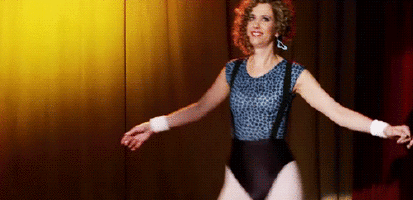The Art of Acting
By Tim Kay
As you might have noticed, Go’s new show, Skit Parade, features scripted sketch comedy. Or, you might have checked out one of our other written shows, like Now That’s What I Call a Show About Music, or Manger Things. Because doing sketch or written shows is a goal for a lot of people in our community, I thought I’d pass along some things I learned as an actor in college that can be applied to performing scripted material. (And they said a Minor in Theater Arts was a risky move!!!)
Here is my list of stuff that you, as an improviser, might not have thought about before when performing scripted material:
For Rehearsal
Be prepared
Bring something to write with and make sure to have your scripts ready to go. Better yet, memorize your lines as soon as possible. Getting your script out of your hand fast is the key to really exploring the scene. With script in hand, you aren’t actually acting. Personally, I like to get the jist of line memorized with the cue lines, then I go back and memorize the words in detail.
Arrive on time
Not to sound like a total pain in ass, but arriving on time is a big deal and shows off your level of commitment. Giving your rehearsals the agreed upon time will allow you to focus and ultimately make the show better. Be a pro and show up on time!
Write down notes and direction
It’s super helpful to have a written record of what your director is giving you. Maybe they want you to move during a certain line, or say something in a certain way. Writing it down will help commit it to memory and provide a reference if you happen to get a TON of notes. Plus, directors haaaaaaate giving notes multiple times.
Stage directions
Know your directions! Back in day, stages used to be tilted towards the audiences. Meaning, the back of the stage would actually be higher than the front. (We call this a raked stage.) That’s why we call the back half of the stage, “upstage” and the front part that is closest to the audience, “downstage”. If you are standing onstage, facing the audience, right and left stage still apply relative to you. Downstage right = towards the audience, on your right.
During a Performance
Be quiet backstage
Nothing sucks more than to be on stage and clearly hear voices from backstage. Not only is this distracting for the audience, it might throw your fellow actors off. You’d hate it if someone was talking through your big scene, right? So, if the lights are up, stay quiet!
Volume & Diction
Being well heard is probably the single most important thing you can focus on. Make sure the very back of the theater can clearly hear every word you say by speaking from your diaphragm (the muscle) and annunciating each word carefully. I usually aim to be twice as loud as I think I should be for any given performance space and I’m still probably too quiet.
Know What Your Weird Body is Doing
Without a ton of experience or direct feedback, you might not have noticed that you fidget when you’re on stage - it’s fine! Many people have habits that they don't realize. As an actor, you should be in control of your body so it doesn’t become distracting and take away from your scenes. It might put you in your head a little at first, but once you become aware of your habits, good and bad, the faster you can correct them or use them to your advantage.
A lot of this advice may seem like it only applies to theatrical/scripted acting, but it should also be kept in mind during your improv performances! Performing is performing amiright?
Focusing on just a few things like these can help your performances and make your acting process smoother. Take it from me, I’m a theater MINOR.







